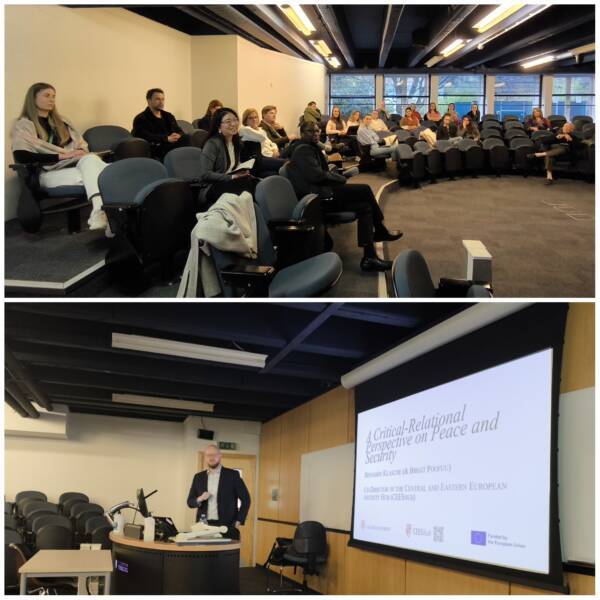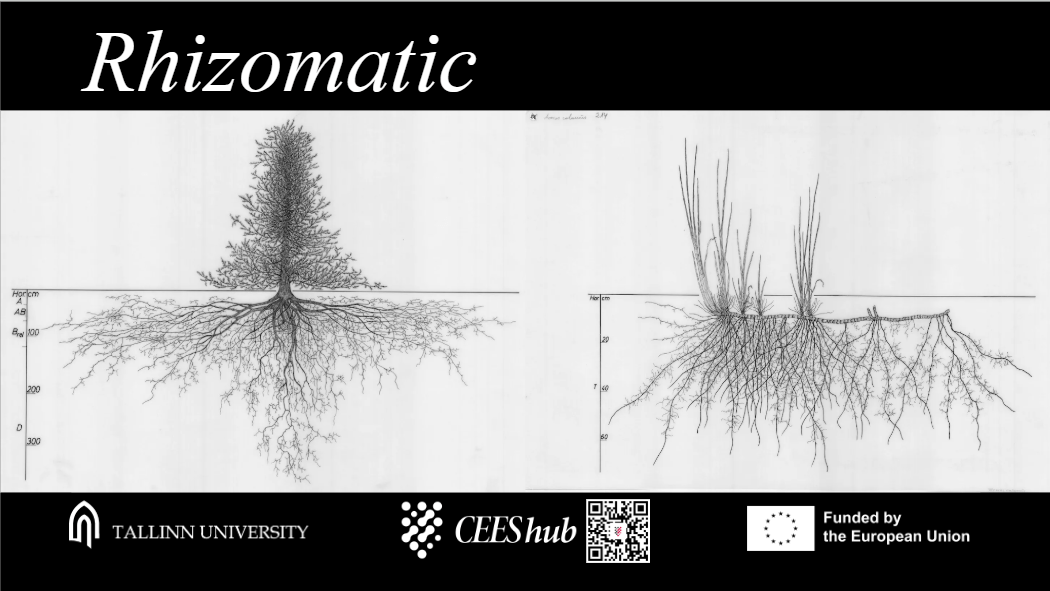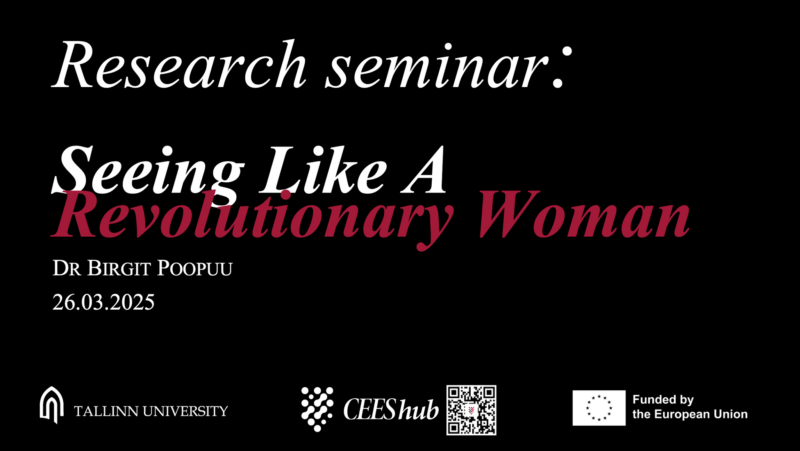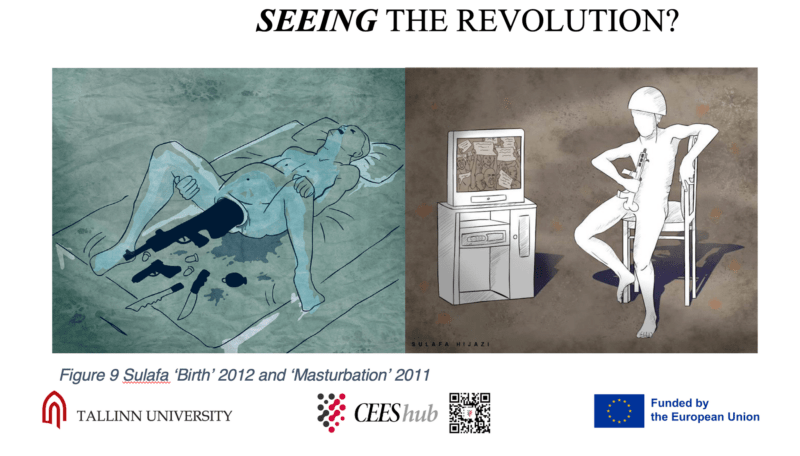Last week Benjamin Klasche visited Stirling University and presented the work of the hub to the students and faculty. The visit was by Stirling’s Faculty of Arts and Humanities and the MSc /LLM Human Rights and Diplomacy. We found great synergy for cooperation in both research and teaching in the CEEShub but also across Tallinn University. Benjamin also had the chance to give an open lecture on “A Critical-Relational Perspective on Peace and Security” featuring his (and Birgit Poopuu‘s) latest research on rhizomatic security, the global interconnectedness of violent conflicts and the role that epistemology and knowing plays in all of this.
Benjamin’s presentation introduced a critical relational perspective to peace-security-conflict to rethink how we imagine these terms so that bodies will not keep piling up (Zalewski 1995). Critically, plural here hints at the fact that our starting points need to begin with insurgent social theories – the perspectives of those who are suppressed. Further, the presentation argued for the need to hold on to different layers of contexts and different processes – peace-security-conflict – as archives of critical theorising have taught us. Based on this, it is possible to conclude that there cannot be one single conceptualisation of security, but it stresses, instead, that we need to foster contextualised and relational approaches.


This week Birgit Poopuu presented a the research seminar of the History, Heritage and Politics Division. Her paper, with the title “Seeing like a Revolutionary Woman” which is currently under review in International Affairs argues for situated radical seeing — seeing like a revolutionary woman — to unsettle how we see global politics. Deploying the theoretical and methodological approach of decolonial love, the seminar proposed that to get a more nuanced understanding of how the Syrian revolution and the diverse relations and worlds linked to it interact, there is a need to interrogate epistemic authority to define the world. Visual stories enable us to hold multiple and complex contexts and relations in one embrace. The protest art of five Syrian women helps us to rethink the boundedness of the Syrian revolution. Through the analysis of their art, it is apparent that to speak about the Syrian revolution is to speak about the world.

